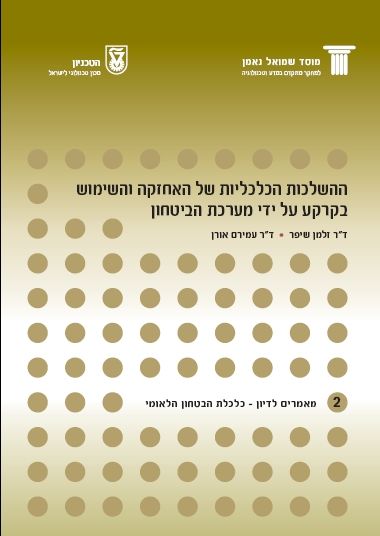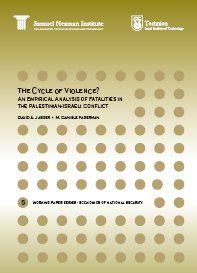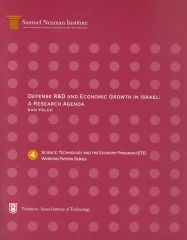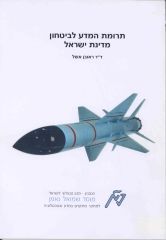The Economic Consequences of the Use and Control of Land Resources by the Defense Sector in Israel

This article presents and analyzes the economic implications of the use land resources for national defense on both the civilian and defense sectors in Israel and discusses means to increase the efficiency of this use. It introduces a theoretical framework for the analysis of the role of land in a two-period civilian-military model subject to […]
Allocating Security Expenditures under Knightian Uncertainty: an Info-Gap Approach
In this paper we demonstrate a methodology aimed at coping with resource allocation under Knightian (non-probabilistic) uncertainty by focusing on the example of competing security measures. The results of this application to security resource allocation also allow us to postulate a possible positivist explanation for the way governments are allocating these expenditures today. We explore […]
Investment Policies in Defense R&D Programs
Investment in advanced defense technologies is a prominent characteristic of modern armed forces. The paper examines the optimal investment policy in developing such technologies, accounting for their S-shaped progress profile and the stochastic nature of the R&D process. We show that the optimal investment is a discontinuous function of the available budget, and that its […]
The Cycle of Violence? An Empirical Analysis of Fatalities in the Palestinian-Israeli Conflict

This paper studies the dynamics of violence in the Palestinian-Israeli conflict since the outbreak of the Second (or “Al-Aqsa”) Intifada in September 2000, during which more than 3,800 Palestinians and more than 1,000 Israelis have been killed. The conflict has followed an uneven pattern, with periods of high levels of realized violence and periods of […]
The Society and National Security
Defense R&D and Economic Growth in Israel: A Research Agenda, Science, Technology and the Economy Program STE-WP-4

When evaluating Israel’s high-tech capabilities and impressive economic achievements since inception, it is difficult not to recognize the important role played by defense and military developments. In particular, defense-related R&D had significant impacts on, as much as it was aided by, Israel’s industrial sector, higher educational system in science and engineering, research community, and the […]
The Contribution of Science to Israeli Security

This survey was commission by President of the Technion, Professor Zehev Tadmor, as part of a series of surveys on the contributions of science to the State of Israel on its 50th anniversary. The project was initiated by the Israel Academy of Sciences and Humanities. Even before the establishment of the State of Israel the […]
